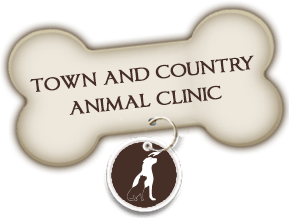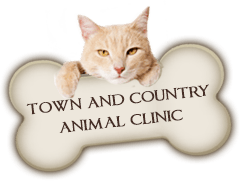WARM WEATHER DANGERS
We all get excited as we get closer to spring and the warm weather is beginning to shine down on us. This means spending more time outside with our families, friends and furry companions. Our pets seem to enjoy the warm weather just as much as we do and as this time approaches we would like to take a moment to talk about the safety of our pets during the warmer months.
BARBEQUES: We all enjoy the smell of BBQ’s that can be detected in the air the first sign of nice weather. Those delicious homemade shish kabobs, hamburgers, grilled veggies are all too delightful. However, we aren’t the only ones who enjoy them. Many dogs (and some cats!) can be seen waiting patiently for a morsel to be dropped while we are cooking which can pose a threat to their health.
Stealing a hot piece of food can cause burns to their lips and insides of their mouths. Even if the piece of food is cool, it can still cause gastrointestinal upset, such as vomiting or diarrhea. Pets don’t use discretion as to what they may steal and eat; burgers still in the packaging, potatoes with tinfoil wrapping or shish kabobs with the skewer, all which could potentially lead to an intestinal obstruction or perforation. Some pets can even be found licking under the BBQ or daringly, the top of the BBQ.
A good idea would be to restrict access to the BBQ to avoid burns and theft.
CORN ON THE COB: Every year dogs (or some cats) become obstructed from eating corn cobs. These cobs do not digest and become lodged in the stomach or intestines causing the patient to become very ill and lead to emergency surgery to relieve the obstruction. Often these patients find these corn cobs in the garbage, in the park, while camping and eat them without their families even knowing. A dog should never be given a cob to chew on and owners should always be aware of disposing corn cobs where pets cannot access them (it’s not unheard of for a pet to find cobs of corn in the field, grass or park, especially at cottages or campgrounds).
POOLS: It is very sad and unfortunate that every year pets drown in the family pool. Contrary to some beliefs, not all dogs are able to swim. Veterinarians may see a couple of these tragedies every summer and it is always heartbreaking. It is not unheard of to hear of a drowning before the pool is actually open; the pet falls into the pool and becomes “stuck” under the pool cover, unable to get out. Just as with children, pets should have their access to pools restricted when left outside alone or be well supervised when outside; whether the pool is open or not. Some dogs who are great swimmers can still have negative effects from swimming in the pool. Dogs that drink copious amounts of water while swimming can have negative effects from the chlorine or even suffer from water intoxication or toxicity. Water intoxication is the result of drinking an excessive amount of water which greatly alters the body’s electrolytes and can lead to severe health complications.
FIREPITS: Just as with people and children, animals should be monitored or restricted when having a bonfire. Some dogs, especially those who loves sticks, will dive nose first into a burning fire to grab one of their favourite “toys”. Empty paper plates with food morsels or fat and food drippings from cooking over an open fire can be a treat too good to resist, resulting in burns. Smoldering logs and embers can cause damage, even if the fire has been extinguished.
PLANTS: As many people are aware, there are many known plants that are toxic to our pets. We think of Lilies at Easter time or Christmastime but we often forget about those plants that can grow outside in our very own yards, neighbours or friend’s yards or even the park. Here is a list of toxic substances, foods and plants for both dogs and cats.

HEAT STROKE: Every year animals suffer from heat stroke, whether it be left in a car or outside without proper shelter from the sun. Dogs and cats can suffer heat stroke quickly when left in the car, even if the windows are cracked or rolled down. On an 85-degree day it takes only 10 minutes for the interior of your parked car to climb to 102 degrees. In a half hour, it can reach 120 degrees. Dogs left outside in the sun without proper protection can also suffer effects of heatstroke. Pets should always have an area of shade with fresh water available to them. Animals with flat faces, like Pugs and Persian cats are more susceptible to heat stroke since they cannot pant effectively. These pets, along with senior pets, the overweight and those with heart or lung disease should be kept in cool, air conditioned areas as much as possible. Walks should be avoided in extreme heat. Restricting walks to early morning or evening when the temperature is cooler is recommended.
HOT ASPHALT: In the summer months, when the temperature is high you should avoid letting your dog linger on or avoid walking them in great length on asphalt. Being closer to the ground, their body temperature can heat up quicker and sensitive paw pads can burn.
Keeping all these tips in mind, you can enjoy a safe and fun filled season of backyard and summer fun.







